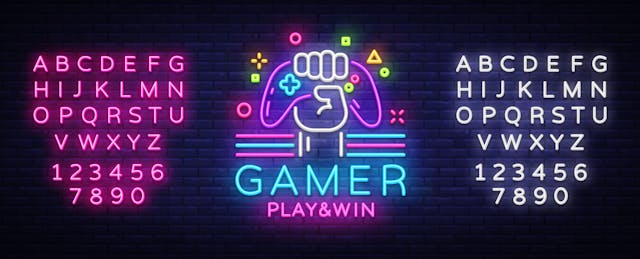From high school valedictorian to game company CEO to computer science instructor, all I really needed to know, I’ve learned from video games. With lessons ranging from time management to algorithmic graph search, here are three of the games that have influenced me the most, and what I’ve learned from playing each of them.
Final Fantasy
Min-maxing is a resource-management term used often in terms of gaming strategy. It is the process of maximizing results while minimizing resources spent.
In Final Fantasy games, the key resource is time. Your character starts out weak and ill-equipped, but every monster you defeat grants a small amount of experience points, ability points, and gold—which can be used to power up your character, learn new skills and purchase superior equipment. There are endless streams of monsters to fight so a common strategy is to simply wander around for a few hours, slaying everything in your path until you are strong, talented and wealthy enough to overcome the challenge before you. This process is known as grinding.
Although I enjoyed the grind, these games take about 40-50 hours to complete and in high school, my gaming time was limited to only a few hours on weekends. This meant I had to be efficient and plan ahead. I would only grind as much as I needed to, and only against the enemies with the greatest reward to difficulty ratio. I spent time powering up early in the game and only periodically thereafter, which let me progress efficiently. Better to spend an hour or two grinding early than waste hours stuck on a difficult challenge later. Once I acquired growth multipliers like EXP plus in the mid/late game, I would visit zones with high experience yield and grind in earnest until fully powered up. It may seem mindless on the surface but grinding efficiently actually takes a good amount of planning and strategy.
I grinded a lot in high school, eventually graduating as valedictorian and principal oboe of a small arts magnet in Los Angeles. I like to think I maximized my experience gained in both the arts and academics during this time.
Of course, this minimized my experience with, say, hanging out with friends or having a girlfriend. Once I got to college, I was determined to turn this around.
Legend of Zelda
At UC Berkeley, I chose to major in Electrical Engineering/Computer Science before learning it was notoriously the hardest major. I also participated in a ton of student clubs and activities, ranging from playing oboe with the orchestra to dancing hula with Cal Hawaii Club. My evenings and nights were quite active but I would rarely wake up in time for lectures the next morning. As you might imagine, I didn't do to well in class.
By senior year, my GPA was low enough that I was in danger of not graduating. My academic foundation from high school was enough to get through lower division classes but I struggled in upper division classes covering operating systems, databases and digital components design. It wasn't until senior year, when I took classes in artificial intelligence and computer graphics, that I finally excelled. It's no coincidence that these courses covered gaming concepts like path finding, texture mapping, and keyframe animation with which I was intimately familiar from a lifetime of playing games like the Legend of Zelda. With these classes, I was able to graduate by the skin of my teeth and even land an internship at Pixar.
After Pixar, I developed a prototype for a math adventure game based on the Legend of Zelda. This in turn helped me gain admission into the Learning, Design and Technology Masters program at Stanford University’s Graduate School of Education. Studying education was a deliberate decision meant to maximize my abilities through meta-cognitive learning, i.e. learning to learn, functioning as a growth multiplier for my own development.
TempusMUD
In college, I also spent a lot of time with the text-based, role-playing adventure TempusMUD. In this massively-multiplayer-online (MMO) world, I grinded and socialized my way up the ranks to clan leader and was eventually invited to do some code and design work for the game itself. This was my first ever game development experience.
I went on to spend much of my twenties in positions ranging from game designer to game coder to game company CEO, from gameplay prototypist to soundtrack composer to game server architect. (In retrospect, even my database class made sense once I made the connection to games.) For my professional game development services, I have been paid hundreds of thousands of dollars.
In my current role as a computer science instructor at Lambda School, text adventure games are a key part of our curriculum and are used to illustrate concepts and technologies such as object-oriented programming, graph theory, WebSockets and more. Students build their own text worlds using the Python programming language and learn to interact with them using algorithms like depth-first search and breadth-first search. Our CS curriculum moves at a blistering pace and can be quite difficult so we use games to make the material more approachable and hopefully, more fun.
Video games have played a key role in every part of my life, from childhood to academia to career. If my time at Lambda School is any indication, that will not be changing anytime soon.
Runners Up: More Games—and What They’ve Taught Me
- Super Smash Bros: The difference between casual and competitive play
- Equatia: The challenges that come with implementing educational games in the classroom


